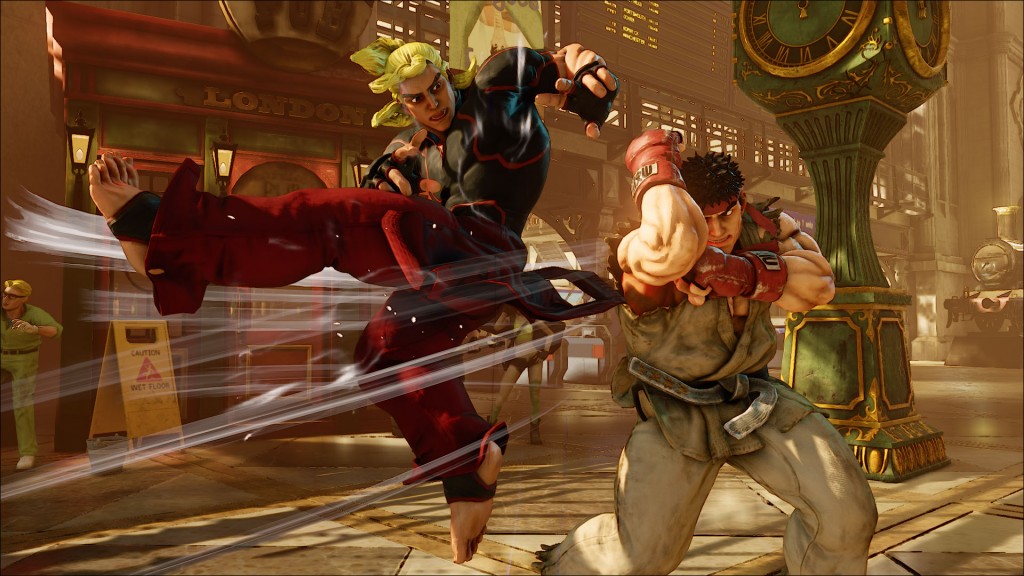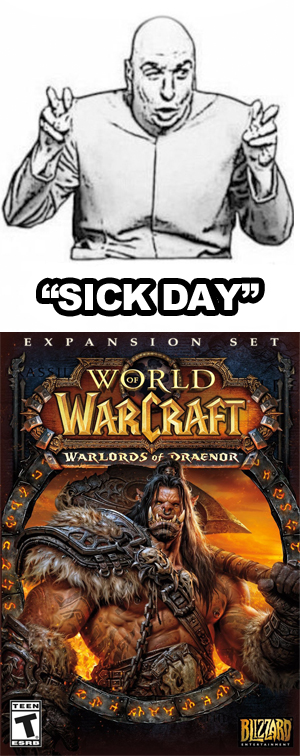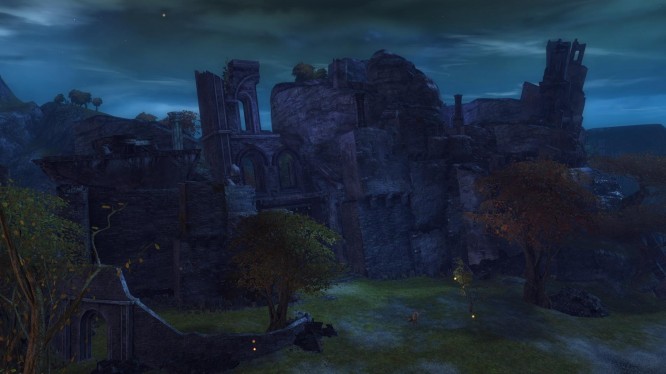

More than most genres, MMORPGs all tend to speak a common language. Sure, in a shooter you know to point the hollow end of the gun at something and press buttons to make them go away, but MMORPGs elevate that common language even higher. For the most part, most of these games exist on a foundation that, as players, we are all familiar with. Guild Wars 2 might have some drastically different combat than World of Warcraft on the surface, but deep down it’s all about triggering abilities in a choreographed dance while avoiding taking damage. We understand basics like how stats tend to influence a character, how to know what piece of gear is better than another. What’s more, we know how things like how groups work, and have basic expectations for how a dungeon or other instanced piece of content plays out.
This common language that all MMORPGs share, from questing to grinding, is both a blessing and a curse. It means we can play various entries in the genre without having to grapple with mechanics. At first we might prod a new system in confusion, but once its purpose is fully revealed we often say things like “Oh, I get it, it’s just like <insert mechanic> in World of Warcraft.” That common bond means that, in many ways, these games stand on each other’s shoulders to do new and interesting things.
But it is also a curse. Go to any general MMORPG community, and what you won’t have to spend a long time to find a common thread between the way people talk about MMORPGs. The truth is, the genre hasn’t seen meaningful innovation in, well, a long time. Wildstar might boast pretty flashy and challenging combat, but the basic structure of it is no different than World of Warcraft, a game that launched over a decade ago.
But whether this common ground proves to be the life or death of the genre, there has been a cementing of ideas that have become integral. A new MMORPG might do some interesting things here and there, but without the basic building blocks that players have come to expect, it is certainly doomed to die. Here is a list of features that every MMORPG should have.
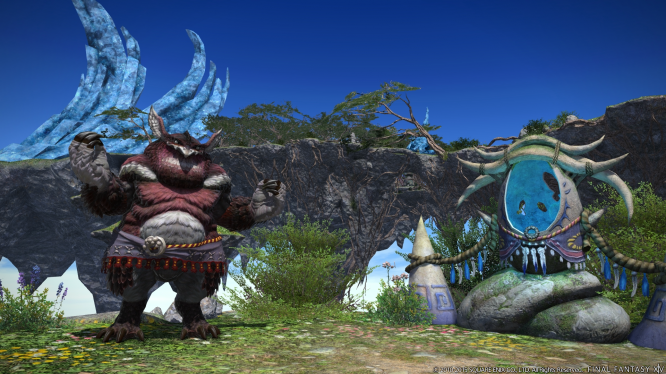
I’ve played too many MMORPGs where it felt like the developer didn’t realize that if players are going to spend hundreds of hours in a world, it better be damn enchanting. It’s a tall order, so I feel a bit sympathetic when certain games miss the mark, but even a fumbled attempt at world building is far better than the hackneyed fantasy worlds that populate a good half of the genre. Don’t mistake that as a jab towards fantasy settings because it isn’t. What it is a jab towards is games whose world building—the total sum of its societies, cultures, races, mythology, and lore—could be summarized on the back of a napkin while waiting in a McDonald’s drive thru.
Looking at the most critically successful MMORPGs (not the most commercially successful, mind you), there is a common thread: They all have awesome worlds to explore. For every game it can be different, Tera and Final Fantasy XIV, for example, both subsist on how gorgeously realized those worlds are. Tera is a pretty shallow game in terms of story, but everything about it tickles the imagination. Final Fantasy XIV certainly has an incredible story at its heart, but that story is even better realized when brought to life in its vivid and imaginative setting. But graphics aren’t the be-all end-all either. Wildstar’s aesthetic is certainly divisive for plenty of people, but no one can argue that it isn’t unique. It taps into a decade of Pixar-like animation to bring to life an explosively animated world that, for many pulls people in.
There is no right way to write a compelling world, but there is no doubt that your MMORPG needs to have it. Whether you enchant players through stunning visuals and art, captivate with compelling writing, or put the story into their own hands like EVE Online, every MMORPG needs a world worth playing in.
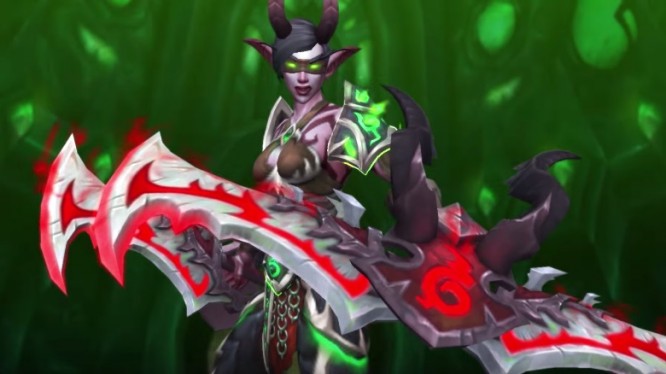
Honestly, I felt conflicted about talking about this, if only because I resent the idea that MMORPGs should adhere to the concept of “endgame”. But, if anything, they feel like a necessary evil. That said, if you’re going to sell out (kidding) by basing your game around 50 levels of soulless grinding before the “real” game starts, you better make the destination worthwhile.
In most ways, this revolves around equally balancing player expectations. You need to have an avenue of play that suits each of your players appropriately. If a group loves doing PvP, there needs to be something for them. If they’re all about raiding, you better have that covered. And lastly, if someone can’t afford to spend hours grinding out boss battles in groups, you should have something to help them progress too. That’s a lot of things to keep track of.
I could write endlessly about how broken the tiered raid system is, but I won’t because, frankly, I don’t have a better solution. Of course, you could always go the sandbox approach and make your game about player-made content, but that’s a whole other beast altogether. That said, players need something to sink their teeth into once they’ve clawed their way to the top of the level progression—and it better be worth it.
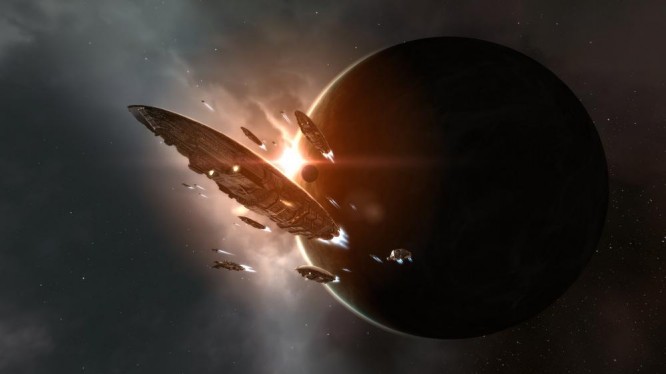
I have a bone to pick with a lot of MMORPGs because, for some reason, the emphasis on social interaction has been vanishing lately. Now, I get how systems like dungeon finders and cross-server gameplay can make games more convenient and approachable. The problem is that, while the unfortunate consequence of these systems is that social interactions tend to diminish in a game, developers seem to have no intent on finding new ways to reinstate that all-important social element.
For a genre that made waves because of its unprecedented levels of social interaction, nowadays things seem like a shell of their former glory in this department. But I firmly believe that the best MMORPGs are the ones that, in their own way, encourage people to be social. Of course, mechanics like guilds, public questing, and dungeons can all help this—but I cannot help but look at the older generation and wish more developers would take a page from their books.
I’m not saying the entire game needs to be like Final Fantasy XI (before recent updates) when partying was mandatory, but rather building systems that require that kind of play and then incentivize it. Great examples of this can be found in games like EVE Online, which pretty much requires playing with a group, or even the way Final Fantasy XIV requires its cutting-edge raid content to be cleared by pre-made groups rather than those in the dungeon finder.
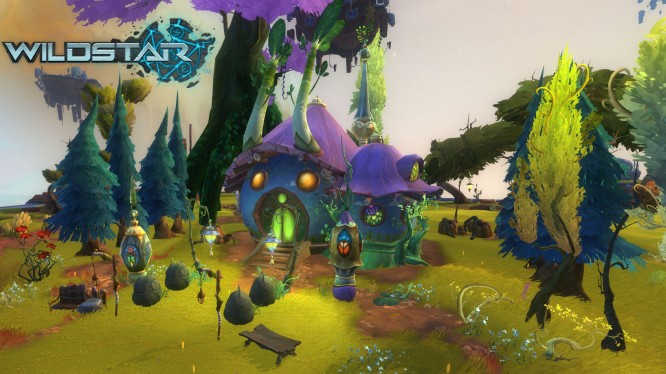
While housing is a popular choice for MMORPGs to offer their audience a way to shape their own corner of the world, it doesn’t necessarily have to be contained to such a small space. In fact, any element of a game that gives players agency over the world, whether that’s Archeage with its housing plots existing in the actual world (not being relegated to a instance like in Final Fantasy XIV), or the way sandbox games like EVE Online allow players to shape the story of the game.
Having some sort of impact on the world is a huge deal, and it goes a very long way in creating a space that players feel attached to. Creating and molding a character is great and all, but the novelty has all but worn out entirely. If you want your MMORPG to be truly great, it really needs some aspect that players can have control over and feel a sense of agency with. Even something like Star Wars: The Old Republic and how quests have multiple branching paths that change based on decisions you make can help you feel like you’re not just walking through a big museum littered with signs that say “You can look but you can’t touch.”
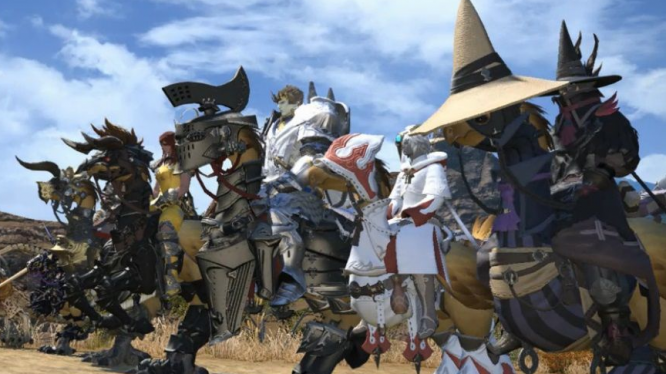
Horizontal progression is just a fancy way of saying that MMORPGs need more to do than just level up or increase your character’s power. Sure, that’s great, but it often becomes very boring when, over time, all you have to work on is levelling your character. Having layers of horizontal progression, and, by extension, lots of distractions along the way, can really help keep your game fresh.
These can be any shape or size, like World of Warcraft’s pet battling or Final Fantasy XIV’s Triple Triad mini-games, or whole supplementary systems like crafting or augmenting gear. This can even feed into items discussed above, like PvP, housing, and worthwhile social interactions to pursue.
Either way, the best MMORPGs are the ones that, outside of the core leveling experience, offer players a wide array of activities to enjoy and pursue; goals to pursue outside of grinding out that new piece of gear or working for that final level—anything to break up the monotony.
But these are just my ideas, what about you? Do you have features that, in your eyes, every MMORPG should have? Let us know in the comments.
